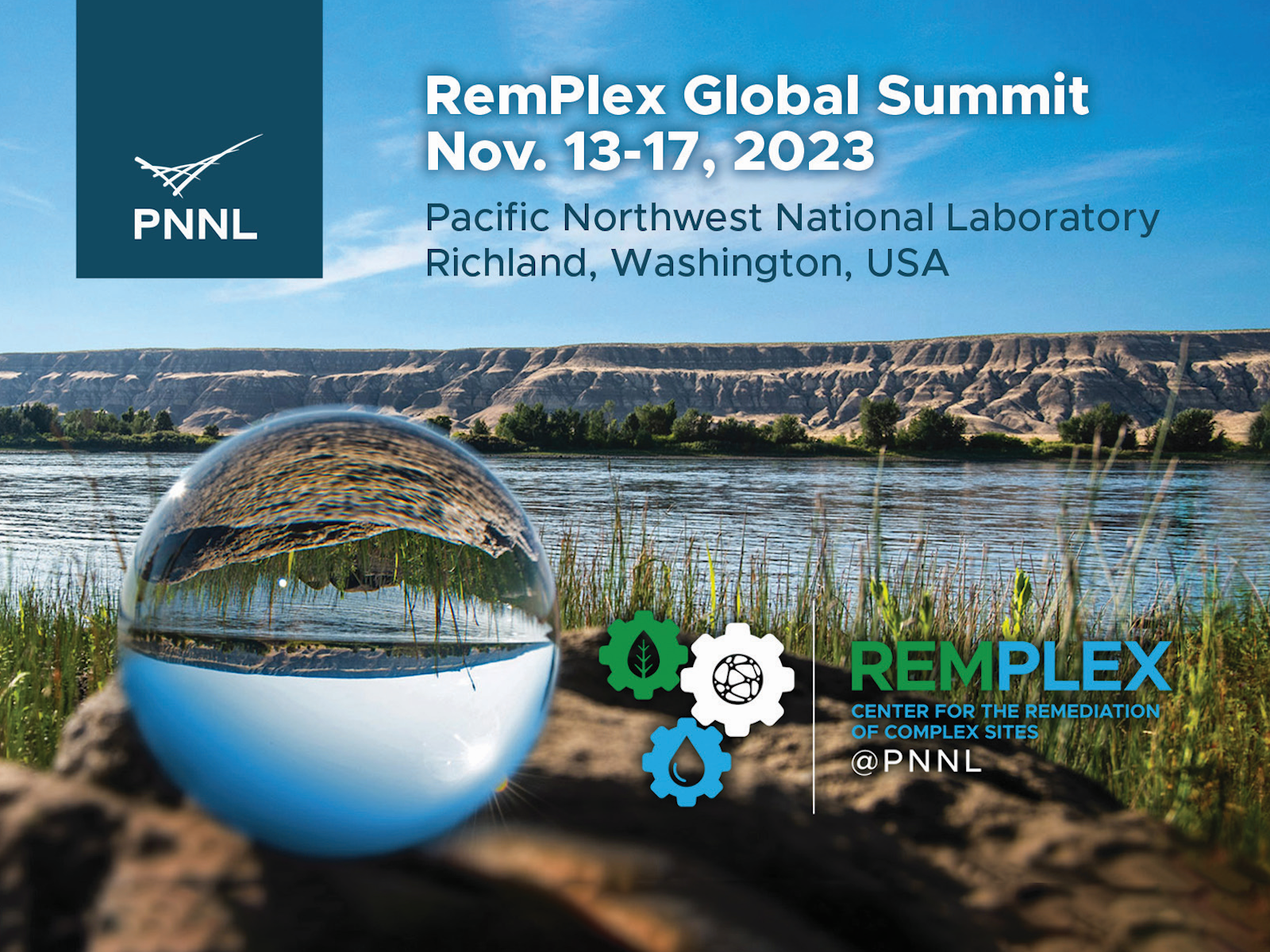Call for Abstracts
The call for abstracts submissions is now closed.

Join the 2023 Global Summit on Environmental Remediation
The Global Summit will bring together participants from government, industry, and research institutions to discuss remediation challenges and to collaborate on the application of both proven and innovative solutions.
The 2023 Global Summit will be held in-person at Pacific Northwest National Laboratory in Richland, Washington, with a virtual option.
Technical Sessions
Nine technical sessions will be convened on Tuesday through Thursday, November 14-16. Abstracts for oral presentations were requested on the following technical session topics. A full overview is provided below or click on a topic to jump to a specific overview.
- Environmental Management and Stewardship Innovations
- Artificial Intelligence/Machine Learning-Empowered Digitization of Environmental Systems
- Innovative Characterization and Monitoring Technologies and Methodologies
- Emerging Remediation Technologies
- Environmental Data Management, Analysis, and Visualization
- Critical Minerals (including Rare Earth Elements): The Promise, Challenge, and Environmental Risk
- Ensuring Sustainability and Resiliency of Remediation Projects
- Multiscale Modeling in Porous Media: Theory to Applications
- Autonomous Measurements and Remote Sensing Across Scales
General Poster Session
In addition to oral presentations on the above topics, a poster session will be held on Tuesday afternoon/evening, November 14. Call for General Poster Session abstracts is now closed.
Abstract Submission Process and Placement Notifications
CALL FOR ABSTRACTS IS NOW CLOSED.
The corresponding author will be notified by email of the placement decision by mid-July. If the abstract is accepted, this email will state the session and format (oral or poster) to which it has been assigned and provide further instructions. Session placement requests entered on the submission form will be considered; however, the acceptance, final placement, and format preference cannot be guaranteed. Final decisions will be based on the best overall design of the Global Summit program.